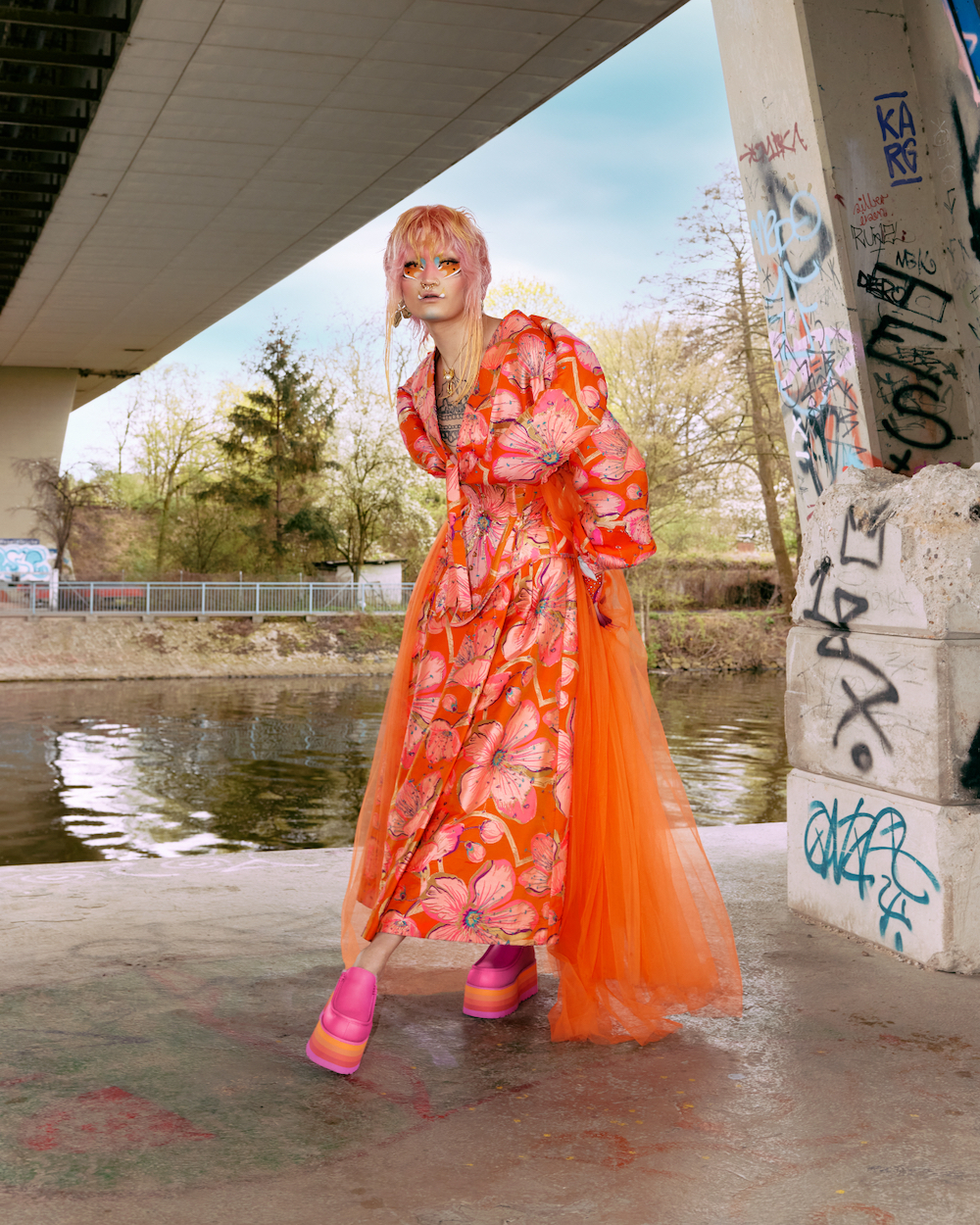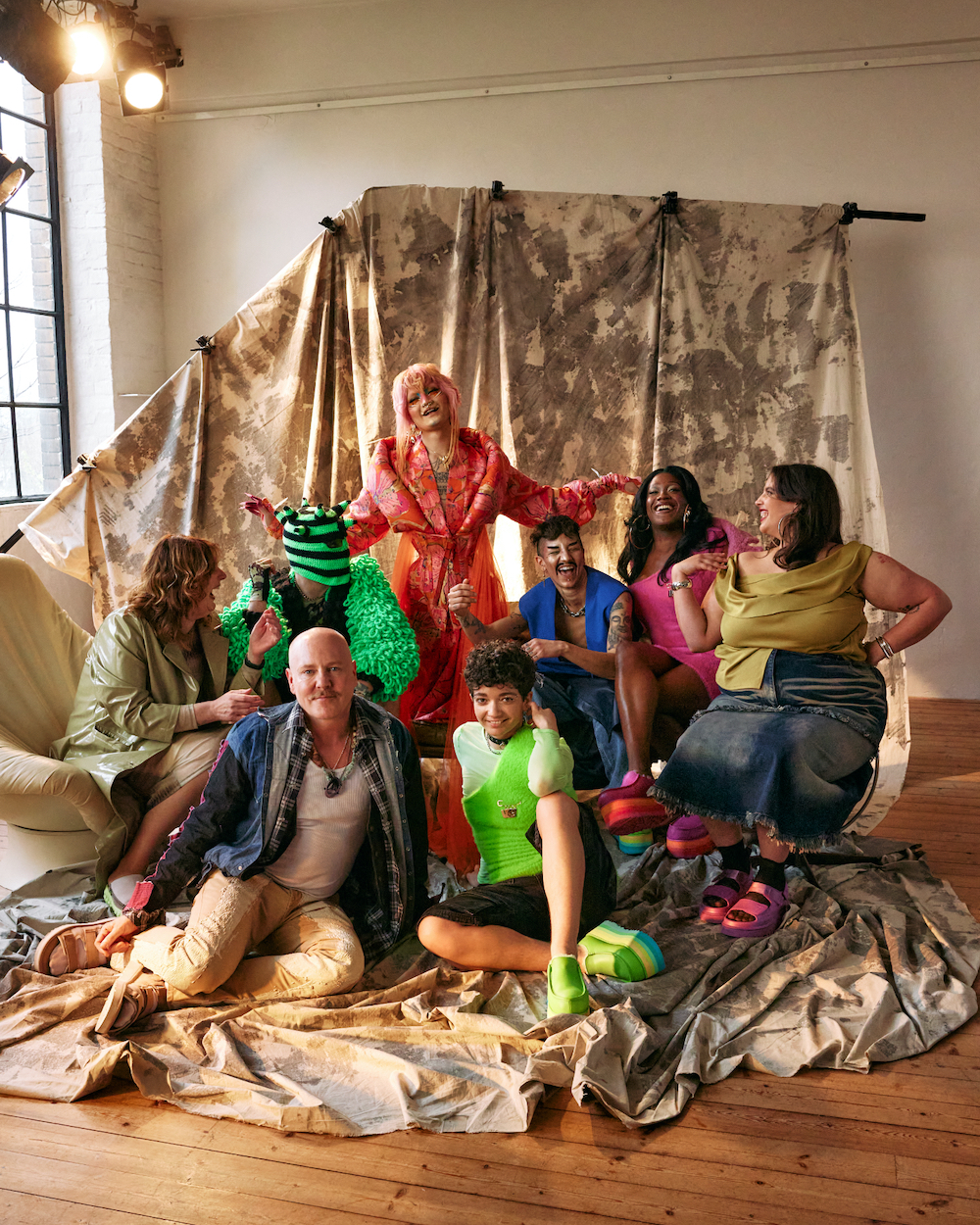Hungry, also known as Hungry the Drag Queen, is a renowned drag performer and makeup artist from Germany. Celebrated for their avant-garde and surreal makeup artistry, Hungry has gained international acclaim for their innovative and boundary-pushing looks. Recently, with other artists, she partnered with UGG for their Feel Heard. Feel Seen Pride Campaign.
IN CONVERSATION WITH DRAG QUEEN HUNGRY
Fräulein: First of, how did you get into makeup and Drag, Hungry?
Hungry: Drag to me started with nightlife and was led by a very casual love for dressing up, but it fast became something very personal. A way of using my own body as a base to throw any creative nonsense at and seeing what would stick and what would feel authentic and true to me.
What is your connection to UGG and how did you become part of the 2024 Pride collection campaign?
I had worn UGG in my daily life, usually whenever I wanted to treat my feet to comfort after the very aggressive heels I would usually wear for drag. When UGG approached me about this project, I took on the challenge to include the designs into my drag character.
What does being part of the project mean to you?
It’s wonderful being part of a campaign that provides so much support to charities that directly help the LGBTQIA+ community. I was thrilled to be able to do my part by sharing some of my experiences and also work with and perform for the lovely crew of Body Language.
What does the Pride Month in general mean to you?
Pride month is about visibility and giving attention to inequalities and societal issues that still affect members of the community. And a lot of being “too much” to chip away at outdated and hostile traditions.
In the campaign you say: ‘I don’t need to be tolerated, I need to be accepted’. What is contributing to this change in society?
Representation is at the base of acceptance, I feel. Being shown and seen as the faceted and creative society we are to make people comfortable around colour and expression.
Since an important aspect of my work is a disruptive spirit, as this is my understanding of art, I don’t aim for my creations to be something for people to be comfortable around, but I want to live my life feeling safe and uplifted and that starts with unapologetic representation and claiming my space in society.
What advice would you like to give to people who want to express themselves creatively but don’t yet have the courage?
Take your time, there should be no one rushing you but yourself. In my experience, the longer something takes / the longer you take to conceptualise, craft and finish it, the better it will be and the happier will you be with it. Patience and quiet process are skills that are slowly getting lost in this oversharing era of content, but they will always hold a special power.

